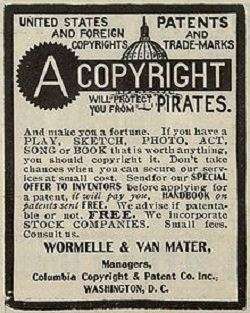Republicans, Hollywood, Lobbyists Freak Out Over Copyright Entitlements
Copyright reform emerging as an issue in Washington

A memo released by the conservative Republican Study Committee on Friday engaging copyright as an entitlement and an abused constitutional power was quickly withdrawn by the RSC after making too much news.
Nevertheless, Republicans were among the first to dump support for SOPA, and libertarian ones like Ron Paul opposed those kind of severe copyright enforcement measures from the get-go. The appeal copyright reform would have for Republicans among young voters shouldn't be underestimated. While the Hollywood Reporter asks if copyright reform would be a revenge fantasy for Republicans, even the RSC, after pulling the memo, admitted that it presented a view some conservatives share. The memo, in fact, was written by a young staffer at the RSC and Ars Technica notes the generational divide the kerfuffle over the memo represents.
The debate over copyright law in Congress is currently playing out with the Internet Radio Freedom Act, which would lower the royalties paid by internet radio stations for the songs they play. It was sponsored by Republican Jason Chaffetz and Democrat Jared Polis, both of whom also opposed SOPA. That legislation faces stiff opposition from the recording music industry, which relies on copyrights granted by government for its entire business model. In an editorial opposing the bill, David Israelite, the president of the National Music Publishers Association explains:
While I strongly believe H.R. 6480 is bad policy and would set a disastrous precedent, my bigger concern is how this Congressional effort stands to undermine the value of music.
The music business is complicated in part by multiple copyrights: one for music compositions (belonging to songwriters and often owned by music publishers) and another for the recording of that composition (represented by record labels). These two separate and distinct copyrights are treated very differently under the law, have very different histories and business practices, and at times can even have conflicting interests.
Rather unsurprisingly, a plain reading of the relevant constitutional clause reveals no conflicting interests, just the promotion "of the Progress of Science and useful Arts" to help "authors and inventors" for "limited Times". Just no progress past Mickey Mouse.


Show Comments (79)